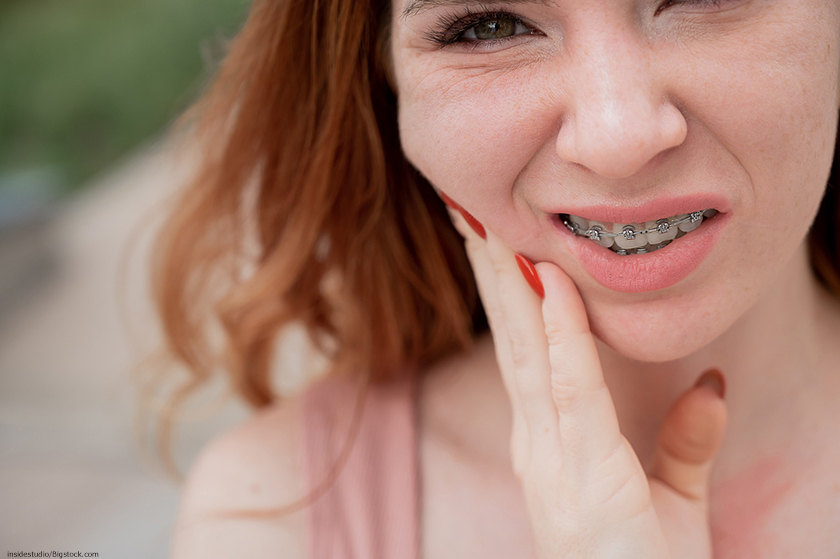
Ouch! What to Do NEXT if You Bite Your Tongue or Lip Badly.
We’ve all bitten our lip or tongue at one time or another. Maybe we were talking or chewing or talking and chewing at the same time. It could have been due to an accident, such as a sports injury, a fall, or even a car crash. Whatever the case, it’s definitely not anyone’s favorite thing to do! Fortunately, most cases aren’t anything worry about. You’ll usually see little if any bleeding, and while the spot may be painful or sore for a few days, injuries to the soft tissue of the mouth tend to heal quickly. In certain cases, however, you should see your Kansas City family dentist right away!
We’ll get into some advice for how to treat more minor incidents of biting your lips or tongue in a moment, but first we wanted to let you know when you should seek medical attention. Obviously, if the bleeding doesn’t stop after the application of ice or pressure, you’ll want to get in to see a doctor or your family dentist in Kansas City as soon as you can. You should also seek treatment if the wound contains particles of food or other debris or if you see any signs of infection in the days following the initial injury. Wounds on your lips, tongue, and cheeks aren’t usually serious, but they’re also not something to take lightly. While we’re at it, always go see your family dentist if your injury also involves cracked, broken, or loose teeth!
In most cases, however, you can treat a bite on your lip or tongue with a little first aid. Here’s a step-by-step guide to what to do if you bite your lip, tongue, or cheek:
1. Wash your hands. This is an important step before doing any kind of first aid. One of the key things to avoid is getting any foreign particles or bacteria into the wound, and the best way to do that is to have clean hands when you begin your ministrations.
2. Apply pressure. The best thing to use here is either a cold compress or, if your tongue is bleeding, some sterile gauze or a piece of clean cloth. The tongue can be tricky, but applying pressure to anyplace in your mouth that’s bleeding will usually stop the bleeding in relatively short order.
3. Put a piece of ice on the affected area if you need a little help with the pain. The ice will help to numb the area and, because it’s just melting water, will also help wash it out and keep it clean.
4. Rinse with mouthwash or salt water. Rinsing your mouth helps clear out particles and debris that could get into the wound. Rinse with water first, and then use mouthwash or salt water to help clean the wound and prevent infection. For salt water, use 1 teaspoon of salt to one cup of warm tap water. It may sting a bit, but it will help keep your injury from becoming infected.
5. You can always take an over-the-counter painkiller if you need additional help managing the pain but only if your doctor or Kansas City family dentist recommends it.
Like any injury, the time that it takes for a bite on your tongue, lips, or cheek to heal depends on several factors, including the severity of the injury, but most of the time, you’ll have healed up within a week or so. If you haven’t, or if pain remains bothersome for several days, it’s definitely a good idea to contact your dentist.
At Blacker Family Dental, we’re happy to help with any of your dental emergencies or dental restorations in Kansas City. If you’re experiencing a dental emergency, call our office at (816) 763-8400 to schedule an appointment. For urgent dental emergencies that fall outside of normal business hours, contact Dr. Kyle Blacker at (816) 304-0663.



